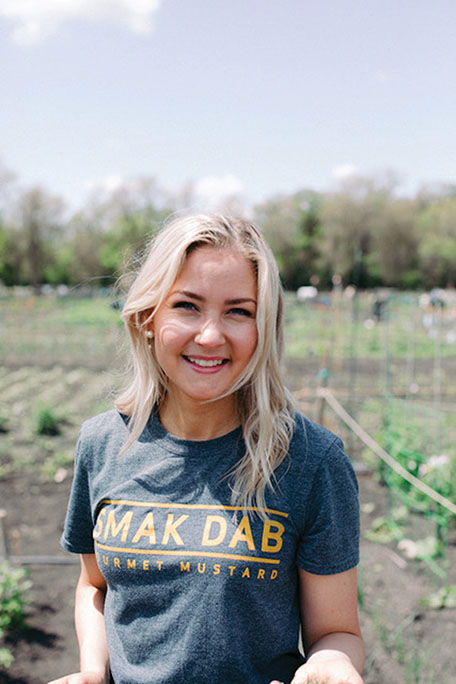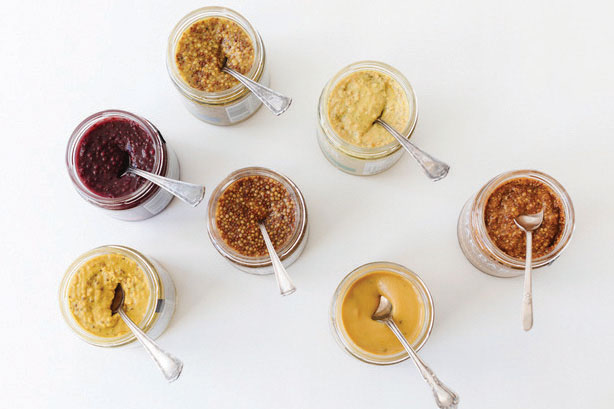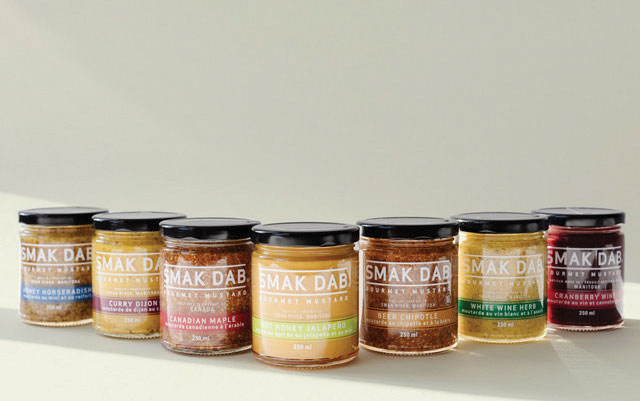Taking Joy in Cooking
The special ingredient isn’t love, it’s mustard
Advertisement
Read this article for free:
or
Already have an account? Log in here »
To continue reading, please subscribe:
Monthly Digital Subscription
$0 for the first 4 weeks*
- Enjoy unlimited reading on winnipegfreepress.com
- Read the E-Edition, our digital replica newspaper
- Access News Break, our award-winning app
- Play interactive puzzles
*No charge for 4 weeks then price increases to the regular rate of $19.00 plus GST every four weeks. Offer available to new and qualified returning subscribers only. Cancel any time.
Monthly Digital Subscription
$4.75/week*
- Enjoy unlimited reading on winnipegfreepress.com
- Read the E-Edition, our digital replica newspaper
- Access News Break, our award-winning app
- Play interactive puzzles
*Billed as $19 plus GST every four weeks. Cancel any time.
To continue reading, please subscribe:
Add Free Press access to your Brandon Sun subscription for only an additional
$1 for the first 4 weeks*
*Your next subscription payment will increase by $1.00 and you will be charged $16.99 plus GST for four weeks. After four weeks, your payment will increase to $23.99 plus GST every four weeks.
Read unlimited articles for free today:
or
Already have an account? Log in here »
Hey there, time traveller!
This article was published 20/07/2022 (1235 days ago), so information in it may no longer be current.
Growing a farmers’-market favourite into a semi-nationally distributed mustard brand is quite a leap. But Smak Dab founder Carly Minish-Wytinck’s success story isn’t about risky business moves. It’s about taking one sure-footed step at a time.
The Red Seal chef came up with the idea for Smak Dab one Christmas when she made mustard as gifts, and discovered she had a hit.
“Working in restaurants, I learned that mustard was incredibly versatile and valuable in the kitchen, so I played around with a recipe using beer and chipotle and gave it to my family — they loved it and that’s how it got going,” she says.

Minish-Wytinck grew up in a family of food lovers, and her “business why” is deeply rooted in bringing joy back to home cooking.
“I love food, I love to eat, I love to cook, I love to bake,” she says.
“People are so busy and overwhelmed that cooking food isn’t a joy anymore, and I wanted to provide something that people could add to the food and add some fun and some love into cooking again. So the whole purpose behind Smak Dab is, ‘Here’s a really good tasting mustard and here’s how you can cook with it.’ ”
Great recipes using quality ingredients, good manufacturing practises, and a meaningful value proposition are key ingredients for Smak Dab’s success.
“Our product line is special because we take a lot of pride in sourcing really amazing ingredients for each of our mustard products,” she says.
That means local honey, real maple syrup, fresh Canadian mustard seeds, craft beers and more. Great ingredients make great recipes.

“We’ve done trials and trials to get them just right where you can taste, say, the horseradish or the honey in the mustard, and it’s a very balanced flavour.”
Minish-Wytinck holds a diploma in culinary arts from Northern Alberta Institute of Technology along with her Red Seal certification.
Her mustards are manufactured and distributed out of a facility in her home town, Swan River, with a regular team of six staff and a few extra seasonal hands. The company has a warehouse in Winnipeg, and retail customers from Quebec to B.C., as well as an online shop.
Starting small lets a business get familiar with the local market — and vice versa. And having solid manufacturing processes that factor in space for growth ensures that enough product will be available for sale when demand increases.
“Going step-by-step helps you to work out the kinks in your business and learn what you can improve on, and then you get your brand recognition locally, which is really important,” Minish-Wytinck says.

Making sure that you live and breathe your value proposition, and that the people you are marketing to understand it, underpins everything else.
“I can’t stress enough how important that value proposition is,” she says. “Your product has to solve problems for people. If you don’t have a value proposition of something you’re providing to the store or the customer, you’re just going to be another product on the shelf.”
That means showing why the product is made and who is behind it, she says.
“And then you can get some really great branding based on who you are, what you stand for, and what you want your business to be about. When people feel more connected to you, they feel more connected to your business.”
She walks that talk by sharing her own stories through social media.

“It’s always really important with my chef’s background, because I think it brings a lot of credibility to the industry when we show we understand how the food industry works and that we can create a product with experiences we’ve had in recipe development,” she says.
“It’s just important to have your story, and I think that businesses tend to not do that enough. Your personal story is not just who you are, it adds to the fabric of your business.”

